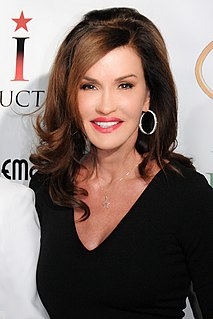A Quote by Shirley Geok-lin Lim
There are a couple of poems I've written with masculine muses, very often the muse to me is a female.
Related Quotes
Women are penalized both for deviating from the masculine norm and for appearing to be masculine. When women try to establish their competence, they are scrutinized for evidence that they lack masculine (instrumental) characteristics as well as for signs that they no longer possess female (expressive) ones. They are taken to fail, in other words, both as a male and as a female.
When you're a female poet, would you, therefore, invoke a male muse? When nuns get consecrated into their vocations, they become brides of Christ. Christ is the bridegroom. In these symbolic actions, rather than in physical actions, where a male reaches sexuality or participates in intimate exchanges, if one uses a different term - there's often a heterosexual figuring that takes place. The male poet invokes a beautiful female muse. The virginal nun consecrated invokes the male bridegroom, Christ.
There are, it seems, two muses: The Muse of Inspiration, who gives us inarticulate visions and desires, and the Muse of Realization, who returns again and again to say, 'It is yet more difficult than you thought.' It may be that when we no longer know what to do, we have come to our real work and when we no longer know which way to go, we have begun our real journey.
Your body can be very female, which is something you can do nothing about, but then you can have the soul, the mind and the spirit of both male and female. The women friends I am closest to somehow have this masculine side to them, they shove their hands in their pockets when they walk: I love that side.


































